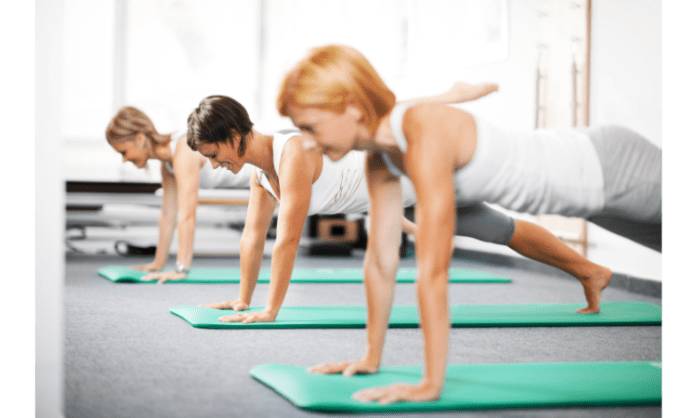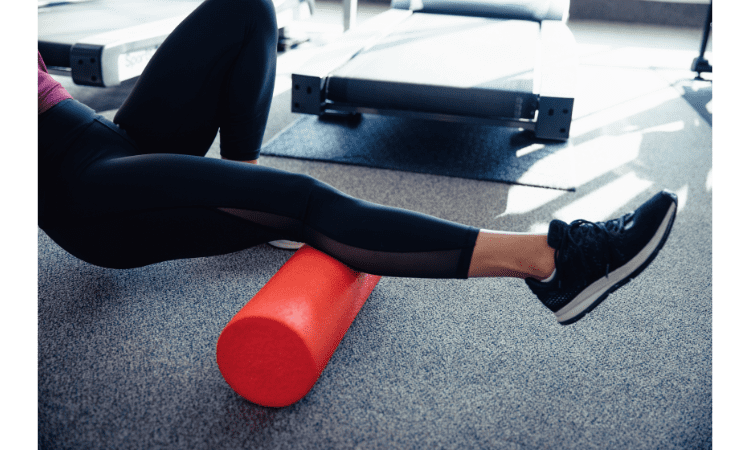
Pilates is one of the most popular forms of exercise in the world, and for good reason. It’s not just a way to work out — Pilates is an opportunity to build strength and mobility through a practice that helps you understand your own body. Pilates teaches you about how you move and how your body works, which can help you prevent injury or pain down the road.
What is Pilates?

Pilates is a form of exercise that focuses on core strength and flexibility. Developed by Joseph Pilates in the early 20th century, pilates has become popular around the world because it’s easy to learn and can be done at home.
Pilates uses breath control, concentration, focus, and precision to improve posture, coordination, flexibility, and balance. It also develops lean muscle mass in your abs and back muscles so you develop a strong core for stability.
This type of exercise can help with lower back pain relief because it strengthens your abdominal muscles which support your spine.
How is it differs from others?
Pilates is a series of exercises that are done on a mat. Pilates uses the body’s own weight to build strength and flexibility, so it’s different from other forms of exercise such as running or cycling, in which you have to use extra effort to get results.
It isn’t just about physical fitness; it also helps to boost mental well-being by improving focus and concentration, increasing energy levels, and reducing stress.
This type of workout doesn’t require any equipment; instead, you’ll use resistance bands or your own body weight for resistance as you lift your arms above your head or stretch down toward the floor. Since Pilates is low impact, it doesn’t cause injury like some other forms of exercise may do if done incorrectly.
Benefits of Pilates
Strengthen muscles

Pilates is a strength training workout that focuses on core strength and flexibility. Pilates helps to strengthen the muscles of your abdomen, back, and hips. Also, Pilates strengthens the muscles of the legs, buttocks, arms, and shoulders. Finally, pilates strengthens the muscles in your neck and spine by helping you to achieve a neutral position for optimal spinal alignment.
Prevents injuries

Pilates is a fantastic way to prevent injuries and pain. The exercises strengthen your muscles, connective tissues, and joints so that they can adequately support you while you move.
Pilates also helps improve your body’s alignment. When you practice Pilates correctly, you learn how to move in safe and efficient ways that reduce the risk of injury.
Finally, Pilates can refine your coordination by requiring that you engage all of the muscles needed for effective movement at once.
Improved flexibility

A well-rounded Pilates program will teach you how to use your own body weight as resistance, which is why Pilates is a great choice for improving flexibility. In fact, many of the exercises in Pilates require you to hold poses for several minutes at a time—which can have similar effects as yoga or tai chi on people with joint pain.
Improved flexibility isn’t just about having the ability to touch your toes; it also refines your range of motion and helps prevent injuries by allowing joints and muscles to move freely without compensation from other parts of the body. This means that if there are certain muscle groups that aren’t very flexible, they won’t end up taking over in other areas where they don’t belong.
Balance management

“Pilates is a great way to improve balance,” said Bowerman. “Balance is a complex task that involves the coordination of muscles in both the upper and lower body.”
The practice of Pilates can help you prevent falls and injuries by improving muscle control, coordination, and flexibility. Additionally, it helps you remain stable through every movement, so even if there are changes in your environment (such as slippery surfaces or uneven ground), your body will be able to adapt quickly.
Mindfulness

- Mindfulness is the practice of being aware of what is happening in the present moment. It can be a mental state of awareness, which is open to experience without bias, or a way of paying attention to your thoughts, emotions, and sensations.
- The goal of mindfulness meditation involves focusing on an object (such as your breath), bringing your attention back when it wanders away from this focus and observing how you react to each new thought that enters your mind.
Alleviates pain

Pain is the body’s way of telling us that something is wrong. It’s a natural response to any injury or underlying condition, but it can also be managed with Pilates.
The Pilates method has been shown to reduce low back pain and sciatica—two conditions that result from poor posture and tense muscles in the back. It can also strengthen your core muscles, which play an important role in supporting your spine. If you suffer from chronic lower back pain, this might be especially beneficial to you since many people with such conditions experience pain because their core isn’t strong enough (or they don’t know how to use it properly).
Reduce stress

Pilates is a great way to reduce stress. One of the main things that contribute to stress is poor breathing habits, and Pilates can help you learn how to breathe correctly. By learning how to move your body through space, you’ll also be able to focus on the present moment, which reduces stress and anxiety. Finally, Pilates helps you relax by teaching self-awareness through movement, allowing you to notice any tension in your muscles before it becomes a problem.
Improves posture

One of the most noticeable benefits of Pilates is improved posture. The exercises are designed to stretch the muscles and realign your spine, which can help prevent back pain and improve your overall gait. As you become more comfortable with the movements, you’ll be able to use them in everyday life—and that means an increased sense of body awareness, whether you’re walking up a flight of stairs or sitting at your desk all day.
Boosts energy levels

As Pilates improves your posture, it also helps boost your energy levels. When you stand and sit with good posture, the body’s circulation boosts, and blood flow is increased to muscles throughout the body. This means that oxygen gets to your muscles more easily which allows them to function better and sooner. Refined circulation can also help you sleep better because it means that there is less strain on your heart when sleeping. This means that overall, Pilates can give you a boost in energy levels by improving both circulation and digestion.
Boosts mental health

Pilates is a great way to improve your mental health. It increases your ability to concentrate, reduces stress and anxiety, increases self-confidence, and helps you feel good about yourself. In particular, it can have a positive effect on people suffering from depression or anxiety by helping them to become less pessimistic and more optimistic about their life. Pilates has also been shown to help sufferers of schizophrenia as well as those who are feeling down due to the effects of chemotherapy treatment.
Better sleep quality

Sleep quality is a vital part of your mental health and well-being. The National Sleep Foundation found that 70% of adults have sleep problems at least once a week, and more than 50% have experienced a lifetime sleep problem. Additionally, getting less than seven hours of sleep per night may increase your risk for conditions like heart disease, diabetes, and stroke.
A good night’s rest will not only help with your mood—pilates can also make you healthier overall by helping prevent weight gain and promoting longevity. Studies show that people who get five hours or less per night are at higher risk for obesity than those who get six to nine hours each night; they’re also more likely to develop high blood pressure and type 2 diabetes over time.
Conclusion
It is clear from the above that Pilates is a great way to improve your health and wellbeing. It offers a number of benefits for both physical and mental health, as well as improving your posture and body shape. With Pilates, you can improve your strength, flexibility, and balance while also gaining greater control over your body movements. In addition, pilates can help prevent injuries by strengthening muscles around joints, and reducing pain levels when exercising regularly.
Read Also: 5 Best Benefits of clam exercise











